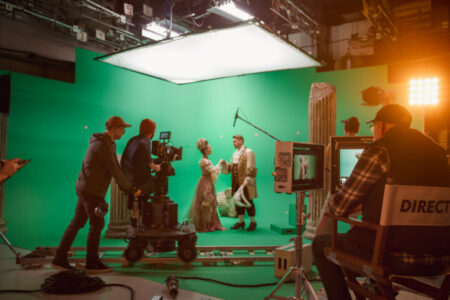Parliament has launched a new inquiry into British film and high-end television, examining issues around skills and retention as well as the challenges posed by the rise of artificial intelligence.
Members of Parliament on the Culture, Media and Sport Committee will investigate what needs to be done to maintain and enhance the UK as a global production destination and how the independent film production sector can best be supported.
The committee will also examine the challenges facing British cinemas, following the recent restructuring of Cineworld and the collapse of the Empire chain.
The inquiry comes 20 years after the report of the previous Commission on the British Film Industry, which made recommendations about tax regimes, training and development. It also comes as major film and TV productions have been halted due to the joint actors-writers strike in the US, which focuses on issues such as leftover payments from streaming platforms and the use of artificial intelligence.
Caroline Dennage, Chair of the CMS Committee, said: “Thousands of moviegoers enjoying the new Barbie movie this weekend will see the British film and TV industry’s latest success story, with Barbieland being built from scratch in a UK studio, demonstrating the sector’s stellar track record of bringing blockbusters to our shores.
“We will look at how to maintain the UK’s appeal as a global production destination while ensuring that independent films can be produced and seen, similar to the recent successes of Rye Lane and Aftersun.
“The financial troubles faced by big-name cinema chains have underscored the importance of protecting and enhancing screen heritage in the UK, while the actors’ and writers’ strikes in the US show the importance of getting ahead of the game in adapting skills and responding to the challenges of artificial intelligence.”
Denning said the committee wanted to ensure that industry and government thought ahead to maintain and enhance a sector so important to the UK’s economy and culture as well as to its strength on the world stage.
Speaking to the Guardian, Oscar-winning producer David Putnam also recently called on the film industry to address a widening skills gap and increasing audiences before the UK is eclipsed as a cinematic powerhouse.
He also said more work is needed to get audiences back into cinemas, including addressing the problem at the grassroots level. “I think more attention should be paid to smaller communities. Does your local cinema really meet your needs? Does it work well? Is it clean?” he said.
Figures released by the British Film Institute last year show total spending on high-end film and television productions was £6.27 billion, a record £1.83 billion higher than in 2019.
Upscale television production was £4.3 billion, with £1.97 billion spent on feature film production. High quality in-house investment TV productions (defined as scripted TV projects with a minimum base spend of £1m per broadcast hour) made last year included Bridgerton, Happy Valley and Lord of the Rings: Rings of Power.
The committee invites anyone with work experience in the sector to submit evidence via its online portal by September 19. MPs have yet to confirm who will be asked to testify in person.
